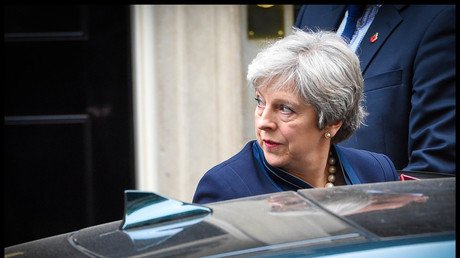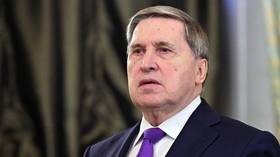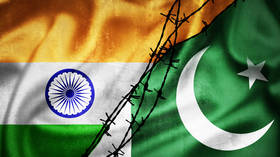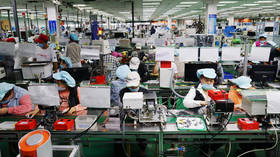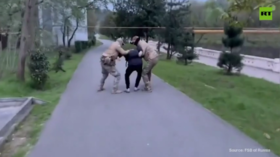British MPs are desperate for some Russian interference, and won’t stop until they find it
If you asked the UK government what it wants for Christmas, it would definitely say “some Russian interference, please mummy.” The UK has seen what’s happening in the US and it wants some Russian interference of its own, and it won’t stop until it gets it.
Both Facebook and Twitter have now agreed they will help a British parliamentary committee investigate whether social media posts that came from Russia influenced the Brexit referendum last year.
The Brits want to ape the U.S. in everything -- Russian interference, metoo. A kind of pathetic reverse colonization.
— Leonid Bershidsky (@Bershidsky) November 5, 2017
Leading the charge is Damian Collins MP, chair of the Digital, Culture, Media and Sport Select Committee. This committee’s dedication is awe-inspiring. Just because there is no obvious evidence of Brexit being influenced, that doesn’t mean the members are going to stop looking. If they need to go on a taxpayer-funded jolly to Washington to talk to Twitter and Facebook, then that’s what they will do. Facebook’s offices have free muffins apparently, so it could be worth a detour.
Imagine what this committee could turn up if it looked into British complicity in the war in Yemen. Luckily, the committee in charge of looking into that is not quite as motivated. Phew!
.@CommonsCMS has today published the responses from Facebook and Twitter to my request for information regarding Russia's disinformation campaign in the United Kingdom as part of our Fake News Inquiry. See the letters here: https://t.co/FpGq34KXdMhttps://t.co/nkUoArcHri
— Damian Collins (@DamianCollins) November 28, 2017
The list of people so far to admit they’ve seen no evidence Brexit was interfered with is clearly not senior enough to take any notice of. Prime Minister Theresa May admits she’s seen nothing, and she really wants to.
Foreign Secretary Boris Johnson also says he’s not aware of anything which may have swayed the vote (but then he would, wouldn't he?).
Yin Yin Lu, a researcher at the Oxford Internet Institute, looked at 22.6 million tweets and found just 400 she would consider ‘interference’ that came from Russia. Your calculator doesn’t have enough zeroes to work out the miniscule percentage on that.
READ MORE: Researcher finds just 400 tweets from Russia aimed at Brexit vote
Collins was told on the radio Tuesday morning by the BBC’s Nick Robinson that most of the Brexit-linked activity coming from Russia was detected after the vote had actually happened, but he was undeterred. “What we’ve discovered through the use of Facebook is that the reach during the US Presidential election of false news generated by the Internet Research Agency in St Petersburg was 123 million people.”
Should someone tell Collins that the US presidential election was in, you know, the US? And hardly anyone in that election was actually voting for Brexit.
Even Twitter said in a letter to the MPs: “We have not found evidence supporting the notion that bots can substantively alter campaign communication, as the activity of the botnet—at least of this defunct botnet in particular—was relatively minor with respect to the larger conversation about the referendum that took place on Twitter.”
What Twitter is suggesting is that a few 140-word phrases, written badly by someone pretending to be a cowboy, probably isn’t going to be enough to change the direction of Western political culture as we know it. Perhaps MPs should be looking into what Twitter terms the “larger conversation” – the one about inequality, and austerity and falling wages and lies written on the side of buses.
Claims of Russian interference have become the gift that keeps on giving for Western politicians, because endlessly searching for any Moscow-shaped straws to clutch at is much easier than admitting you don’t know what you’re doing and may have completely ballsed up the job you were elected to do
Collins and his committee have seen the big old Russian scapegoat taking a flogging over in the US, and wants one for the UK.
For Britain, finding this decisive Russian interference would mean two things: 1. It wouldn’t have to take responsibility for its own mess. 2. Someone out there actually still cares enough to want to interfere.
